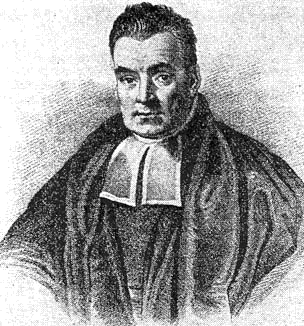
Once upon a time, I thought the closest that “Goldilocks and the 3 Bears” came to the realm of hard science was some questionable thermodynamics. Has anyone else ever wondered how the mother’s medium-sized bowl got cold while the baby bear’s small bowl stayed “just right?” No? Just me? Actually, I know at least one other person pondered that question, because one illustrated version shows the medium bowl as broad and shallow, while the small bowl is deep. The medium bowl holds more porridge, but has a greater surface area to allow more heat exchange and thus faster cooling.
But actually, scientists have found the world we live in is also “just right” when it comes to the laws of physics. These mathematical formulas, which represent our current best description of the behavior of the universe, include a number of numerical constants. These are properties of the world that we can measure or estimate, but cannot calculate from any known equations. In other words, based on our current theories, these constants could hypothetically take on any value; we only know from observation which particular values they have, and that those values do not appear to change over space or time.
Those same formulas allow us to explore what the world might look like if those constants had different values. And it turns out that most of them have to be in very narrow, specific ranges in order to get behaviors that bear any resemblance to the ones we are used to. The general understanding is that if any of these constants were outside of their narrow “Goldilocks” range, life as we know it wouldn’t exist. Tautologically, we must live in a universe that has the properties to support life as we know it — but why is there any such universe at all?
That question has been rolling around in my head for a while, and last week’s story about the implications of the Higgs’ boson findings for Big Bang cosmology, which questions the likelihood of our universe, seemed like as good a reason as any to take it up. One possible answer is that there are many universes or there have been many universes; only those with the “just right” properties happen to have intelligent life to ponder why. Another answer is that an intelligent agent identified the necessary values and dialed them up, perhaps to guarantee the existence of life to which he/she/it could relate in some fashion. This is an approach many Christians take, citing this fine tuning of the world as evidence of a Creator God, consistent with the one described in the Bible.

But personally, I confess that I don’t find this line of reasoning terribly satisfying. One of my difficulties is scientific. A lot of fine tuning conversations are wrapped in the language of probability, describing this particular universe as “unlikely” to have happened by chance. But what do we really know about how likely it is? There are two popular ways to think about what a probability means. Frequentists define the probability of an event as the frequency of that event occurring during a large number of identical trials. Since we’ve only the one universe to look at, how do we know how often one like it would come up if we made more at random? Meanwhile, Bayesians describe probability as a belief about how likely or unlikely something is. Here we are fine to assert the probability of the various constants having particular values, before we even take a look at any universes at all. But in the Bayesian world, one updates ones beliefs based on data, and we’re still left with the one data point. In such data-poor scenarios, what one gets out is essentially whatever beliefs one put in; saying the world is unlikely thus tells us more about ourselves and our presuppositions than the nature of the universe. Consequently, I don’t really know what is meant when the universe is called unlikely, and so I have a hard time deciding whether it is a claim worthy of further consideration or not.
My bigger problem, however, is a theological one. What are we really saying about God when we appeal to the fine tuning of the universe? The laws of science say that the universe must be thus in order for a particular kind of life to exist on Earth. God, being omniscient, knows these requirements perfectly and implements them perfectly. And here we are! Except, doesn’t that make God in some way bound by the laws of science? When we frame the argument this way, aren’t we just inviting people to consider that perhaps, as long as one has the laws of science, one doesn’t need God? Is it any wonder that so many are pondering precisely that conclusion?
Now, one might go on to say that God created the laws of science. That’s perfectly fine, but that’s an entirely different line of reasoning. If one can make the argument that existence of laws of science requires the existence of God, then it is not clear what is further gained by saying God is also required to implement them. And if the laws of science are somehow self-evident, then we are back to a God who is bound by them. Therefore it is not clear to me that there is much benefit in making an argument for God from fine tuning, and it appears that there is much potential for steering people towards the opposite conclusion from the intended one.
Andy has worn many hats in his life. He knows this is a dreadfully clichéd notion, but since it is also literally true he uses it anyway. Among his current metaphorical hats: husband of one wife, father of two teenagers, reader of science fiction and science fact, enthusiast of contemporary symphonic music, and chief science officer. Previous metaphorical hats include: comp bio postdoc, molecular biology grad student, InterVarsity chapter president (that one came with a literal hat), music store clerk, house painter, and mosquito trapper. Among his more unique literal hats: British bobby, captain’s hats (of varying levels of authenticity) of several specific vessels, a deerstalker from 221B Baker St, and a railroad engineer’s cap. His monthly Science in Review is drawn from his weekly Science Corner posts — Wednesdays, 8am (Eastern) on the Emerging Scholars Network Blog. His book Faith across the Multiverse is available from Hendrickson.

thermodynamics and Goldilocks – love it
Thanks for this post! I very much agree with your conclusions.
Great read, thank you. Forgive me if I’m missing the point, but could the issue also lie in the necessity to distinguish God from science? Or, the thought that these constants are adjustable at all? When I read John 1, I am told of Christ as the Word, the ever-existing logos, through which all things were created. When physicists derive these constants, could they be deriving aspects of Christ as he’s always existed?
I don’t think you’re missing the point, Robert. I think you raise some interesting questions.
I certainly don’t think that we need to completely separate God & science. Among other things, I would say that science is a gift from God to us, and it represents one way that we can express how God works in the world.
However, I do think it is important to draw some distinction between God and science, if for no other reason than that science, or rather our understanding thereof, is constantly changing, whereas God is constant.
So while I don’t object to your notion that there exists some fundamental property or properties of the universe that manifest an aspect of Christ in the abstract, I would be reluctant to make such a claim about the specific constants of our current models. Sometimes, we discover that what we thought was a free constant can actually be defined in terms of other laws or constants. A theology or Christology that was too reliant on that particular constant would then be subject to criticism, or represent another opportunity to say “See, science proves there is no God.”
Thankfully, now that the semester is over, I’ll be able to think about this some more. Thank you for the reply Andy!